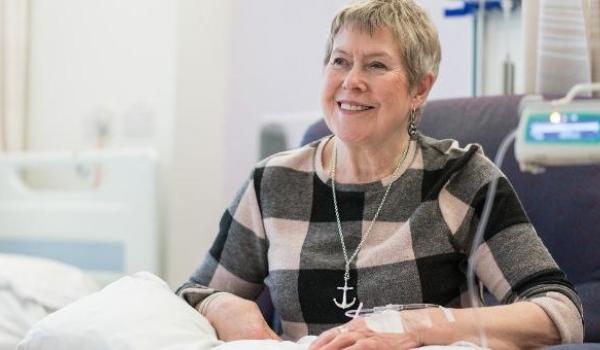BOUQUET: A Study Evaluating the Efficacy and Safety of Biomarker-Driven Therapies in Patients With Persistent or Recurrent Rare Epithelial Ovarian Tumors
Who can take part
Please note - unless we state otherwise in the summary, you need to talk to your doctor about joining a trial.
You may be able to take part in this trial if you:
- are 18 years old or over
- have one of the following rarer types of ovarian, fallopian tube or primary peritoneal cancer
- low-grade serous ovarian carcinoma
- clear cell carcinoma
- mucinous carcinoma
- carcinosarcoma
- undifferentiated carcinoma
- seromucinous carcinoma
- malignant Brenner tumours
- grades 1 or 2 endometrioid carcinoma or
- small cell carcinoma of the ovary-hypercalcemic type
- have received at least one previous treatment for your disease including at least one platinum-based treatment
- your cancer is considered platinum-resistant
This is not an exhaustive list. If you're interested in participating in a clinical trial, you should speak to your doctor about what other criteria might apply.
About the trial
The researchers in this clinical trial want to test the safety and effectiveness of different type of anti-cancer treatments in patients with different genetic changes (biomarkers) in their cancer. The trial is for women with rarer types of ovarian cancer where standard chemotherapy drugs haven't worked.
Many of the drugs used in this trial belong to a class of drugs called protein kinase inhibitors. A substance that blocks a type of enzyme called a kinase. Human cells have many different kinases, and they help control important functions. Certain kinases are more active in some types of cancer cells and blocking them may help keep the cancer cells from growing
The drugs involved in this clinical trial are:
- ipatasertib – a protein kinase inhibitor (a tablet taken by mouth).
- paclitaxel – a standard chemotherapy drug (given as a drip into the vein).
- cobimetinib – a protein kinase inhibitor (a tablet taken by mouth).
- trastuzumab emtansine – a monoclonal antibody combined with a chemotherapy drug (given as a drip into the vein).
- atezolizumab – a type of immunotherapy drug (given as a drip into the vein).
- bevacizumab – an anti-angiogenesis drug (given as a drip into the vein).
- giredestrant – a hormone therapy drug that block oestrogen (a tablet taken by mouth)
- abemaciclib – a protein kinase inhibitor (a tablet taken by mouth)
- inavolisib – a protein kinase inhibitor (a tablet taken by mouth)
- palbociclib – a protein kinase inhibitor (a tablet taken by mouth)
- letrozole –an aromatase inhibitor (a tablet taken by mouth)
- olaparib – a PARP inhibitor (a tablet taken by mouth)
- cyclophosphamide – a chemotherapy drug (a tablet taken by mouth)
- luteinizing hormone-releasing Hormone (LHRH) agonists – a hormone blocking medication (given by injection)
Everyone who joins this clinical trial will have tests to look for biomarkers in their cancer (biomarker screening). The tests are performed on a small tissue sample taken from the tumour.
If you take part in this study, you'll be placed into a treatment group depending on the biomarkers found in your tumour. Some treatment groups will receive just one drug, other groups will receive a combination.
In this trial both you are your doctor will know which treatment you are being given. You'll be given the clinical trial treatment for as long as it can help you. You're free to stop this treatment at any time. As the trial progresses, researchers will occasionally need to stop admitting women to the trial whose biomarkers indicate the need for a particular treatment, this is to allow them time to assess how well that treatment is working so far. If you are interested in taking part in this trial your oncologist can support you to find out which treatments are currently available in the trial.
After finishing your treatment, you'll have regular check-ups with the research team.
This information was last reviewed on 08/02/2024. Please note that the status of clinical trials can change at short notice. You should always check with your clinical team which trials may be suitable for your situation.



